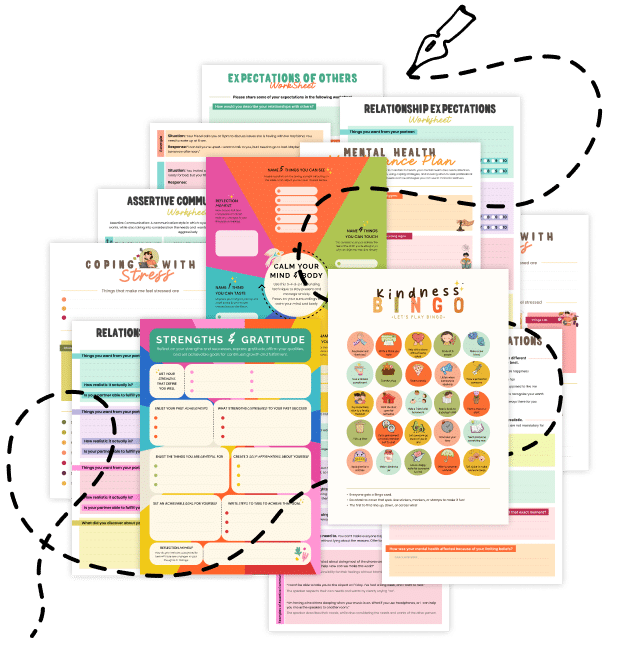20 Things About Cognitive Flexibility Games
Enhance your mental agility and adaptability with these 20 insights on Cognitive Flexibility Games—what they are, why they matter, and how to incorporate them into your daily routine.
1. What Are Cognitive Flexibility Games?
Cognitive Flexibility Games are activities—digital or analog—that challenge you to switch strategies, adapt to changing rules, and think from multiple perspectives. They’re designed to keep your brain agile and responsive to new information.
2. A Core Executive Function
Cognitive Flexibility is one of the main pillars of executive function—alongside working memory and inhibitory control. Games targeting this skill help you more easily pivot between tasks and handle unexpected challenges.
3. Beneficial for All Ages
From children learning to follow new classroom rules to seniors looking to stay sharp, these games cater to every age. Their adaptable nature means you can scale difficulty up or down to suit your needs.
4. Digital vs. Physical
Some prefer the convenience of apps and online brain-training platforms, while others like hands-on board games or puzzles. Both options work—the key is finding something that genuinely pushes you to change tactics.
5. Boosts Problem-Solving Skills
By forcing quick shifts in perspective, these games sharpen your ability to find creative solutions. You learn to “think around corners” instead of getting stuck on a single approach.
6. Cognitive Flexibility Games Helps Manage Stress
When you’re good at adapting, everyday stressors can feel less overwhelming. Cognitive Flexibility Games build mental resilience, making it easier to remain calm and resourceful in the face of unexpected changes.
7. Examples of Classic Games
- Card Switching Games: Quickly re-sort cards based on changing criteria (suit, color, or value).
- Rubik’s Cube: Adapt your moves each time you encounter a different color configuration.
- Chess Variations: Force new strategies on the fly by altering traditional rules or piece movements.
8. Modern Digital Apps
There are countless apps that track your performance and gradually ramp up difficulty. Look for ones that incorporate timed tasks and require you to switch rules or strategies mid-game.
9. Multiplayer Collaboration
Cognitive Flexibility Games don’t have to be solo. Group games that rotate roles or change rules mid-round (e.g., certain card or party games) help you practice shifting perspectives in a social setting.
10. Encourages Open-Mindedness
As you get comfortable changing plans on the fly, you become more receptive to other people’s ideas. This skill translates into everyday life—whether in brainstorming sessions or casual conversations.
11. Physical Coordination Elements
Some flexibility games incorporate physical moves (like dance or sports drills). They merge motor skills with mental agility, demanding quick shifts in both body and mind.
12. Cognitive Flexibility Games Impact on Work Performance
Jobs often require multitasking and quick adaptation. Regular practice with cognitive flexibility exercises can make switching projects, handling sudden requests, or solving new problems more seamless.
13. Helpful in Learning Contexts
Students benefit from switching between different types of problems—like math, reading, and science. Games that reinforce this pivot skill can lead to more effective study habits and quicker grasp of varied subjects.
14. Reinforces Emotional Regulation
Difficulty or frustration during a game can trigger emotional responses. Learning to adapt calmly under pressure hones your ability to manage stress and stay focused during challenging moments.
15. Brain Pathways and Plasticity
Cognitive Flexibility Games tap into neuroplasticity. Each time you adapt, you strengthen neural pathways that help you pivot more smoothly in the future.
16. Combining with Other Skills
Pair games that train flexibility with those that target working memory or inhibitory control for a rounded executive function workout. Mixing challenges ensures your brain gets a well-balanced “mental gym session.”
17. Warning Against Overreliance
While these games are great tools, they’re not one-size-fits-all cures. Combine them with real-world challenges—like learning new skills or pursuing varied hobbies—for the best results.
18. Ongoing Practice Matters
Like any exercise, benefits fade if you stop training. Make these games part of your routine—whether it’s a 10-minute daily app session or a weekly game night with friends.
19. Fun and Motivation
Pick games that genuinely interest you. Consistency is easier when you enjoy the challenge, and you’ll naturally push yourself to solve puzzles or pass levels for the fun of it.
20. Related Topics to Explore
- Task Switching Costs: Understand the mental “tax” each time you switch tasks.
- Attentional Set Shifting: Delve deeper into how we pivot between different cognitive rules.
- Neurobics: Explore novel activities that combine senses and cognitive tasks for brain agility.
- Psychological Flexibility: Broaden your adaptability in both mental tasks and emotional well-being.
Quick Tips to Boost Cognitive Flexibility Games
- Start Small: Try short sessions—5 to 10 minutes—focusing on quick rule changes or color-coded tasks.
- Vary Your Selection: Alternate between board games, apps, and physical activities to keep challenges fresh.
- Play with Others: Invite friends or family for collaborative or competitive modes—social pressure can ramp up mental agility.
- Set Goals: Track your improvement—like faster completion times or fewer mistakes—to stay motivated.
- Pair with Real-Life Situations: After a game session, tackle a real task that involves switching strategies or juggling multiple priorities.
Cognitive Flexibility Games challenge your brain to pivot rapidly, sparking creativity and teaching you to handle the unexpected with ease. By weaving these activities into your routine—whether through digital apps, board games, or physical drills—you’ll sharpen your mental agility and find it easier to thrive in a fast-changing world. Share this article with anyone seeking a fun, proactive way to bolster their thinking skills!


